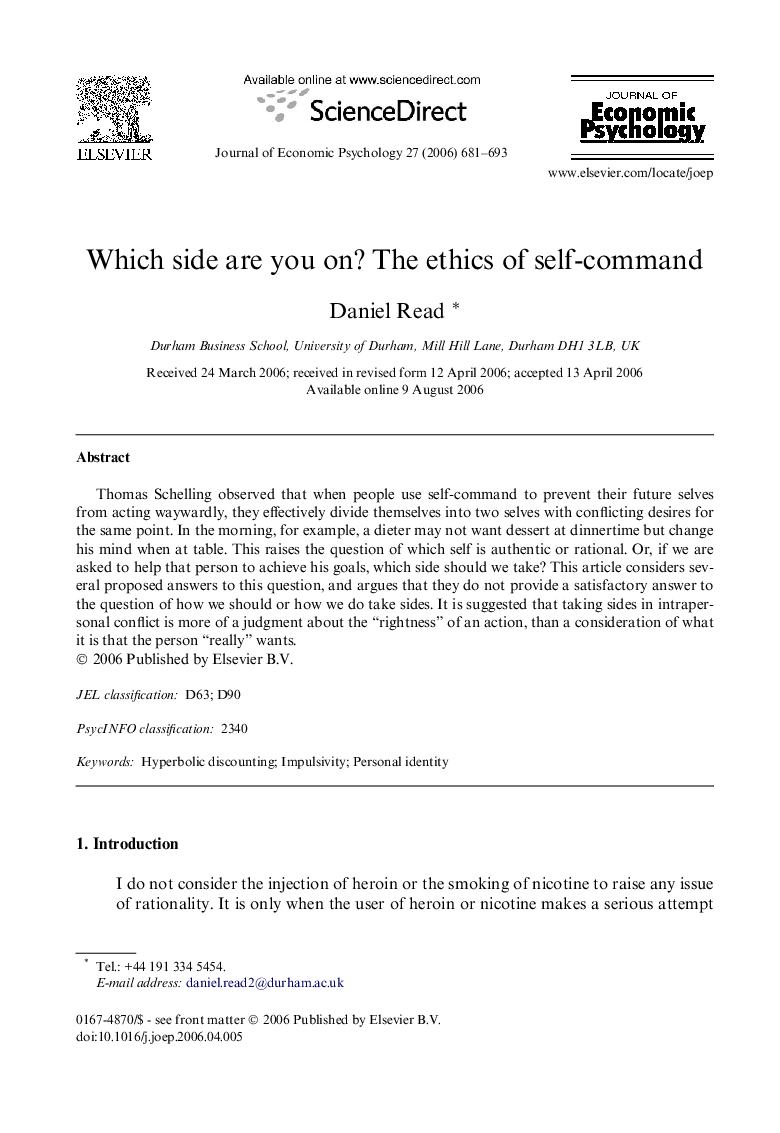| Article ID | Journal | Published Year | Pages | File Type |
|---|---|---|---|---|
| 885450 | Journal of Economic Psychology | 2006 | 13 Pages |
Thomas Schelling observed that when people use self-command to prevent their future selves from acting waywardly, they effectively divide themselves into two selves with conflicting desires for the same point. In the morning, for example, a dieter may not want dessert at dinnertime but change his mind when at table. This raises the question of which self is authentic or rational. Or, if we are asked to help that person to achieve his goals, which side should we take? This article considers several proposed answers to this question, and argues that they do not provide a satisfactory answer to the question of how we should or how we do take sides. It is suggested that taking sides in intrapersonal conflict is more of a judgment about the “rightness” of an action, than a consideration of what it is that the person “really” wants.
